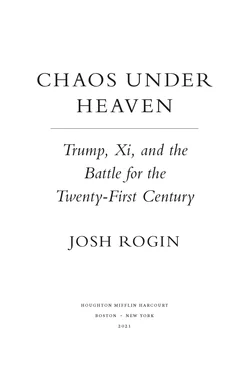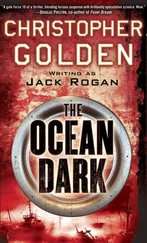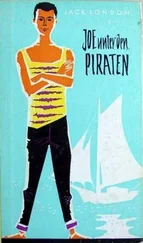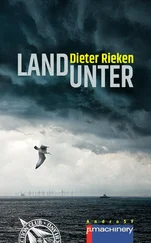“Look, you all need to convince me why we shouldn’t shut down travel from China,” Pottinger told the group. “Our default position should be to shut it down.”
Not one of the other officials agreed. They thought Pottinger was out of his mind. The next morning, Pottinger had a conversation with a very high-level doctor in China, one who had spoken with health officials in several provinces, including Wuhan. This was a trusted source who was in a position to know the ground truth.
“Is this going to be as bad as SARS in 2003?” he asked the doctor, whose name must remain secret for his own protection.
“Forget SARS in 2003,” the doctor replied, “this is 1918.” He was referring to the deadliest pandemic of the twentieth century: an influenza outbreak that killed roughly fifty million people worldwide.
The doctor told Pottinger half the cases were asymptomatic and the government must have known all about it. He added that there was evidence of sustained human-to-human transmission in several provinces. SARS didn’t have asymptomatic spread. O’Brien and Pottinger briefed Trump in the Oval Office the next day, Tuesday, January 28.
“This is the single greatest national security crisis of your presidency and it’s now unfolding,” O’Brien told the president.
“It’s going to be 1918,” Pottinger told Trump.
“Holy fuck,” the president replied.
O’Brien and Pottinger recommended that Trump immediately ban travelers who were coming to the United States from China, or who had recently been to China. Every single other Trump official opposed the move, even the health experts like Fauci, for two more days. Only on Thursday, January 30, the day the first US case of human-to-human transmission was confirmed, did the health experts switch sides and decide to support the travel ban. But White House chief of staff Mick Mulvaney and Steven Mnuchin held firm, warning Trump that it would tank the markets and hurt the airline industry.
Trump sided with O’Brien and Pottinger. He announced the ban on Friday, January 31.
“It wasn’t a consensus view, by any stretch of the imagination,” Pottinger told me later. “Trump went with his instinct and shut it down.”
All Hell
When Trump announced the ban on travel from China, it seemed drastic. It was drastic. This was an election year, and the success of the economy was the core of Trump’s argument for a second term. Nobody wanted to believe it was necessary. The implementation of the policy was chaotic and raised more questions than answers. And Trump was still downplaying the severity of the risk, which made the China travel ban seem even more aggressive at the time.
On February 1, the day after Trump announced a ban on all travelers save for American citizens who had been to China within the last fourteen days, one of the Democratic presidential primary contenders sent out a tweet. “We need to lead the way with science—not Donald Trump’s record of hysteria, xenophobia, and fear-mongering,” wrote Joe Biden, the former vice president under Barack Obama and a longtime presidential hopeful. Later, the Biden campaign would say Biden was not calling Trump’s decision to ban travel from China “xenophobic,” but rather referring to Trump’s use of the term “China virus.” But the timing of Biden’s tweet shows that it was very likely a response to the travel ban decision. The Biden campaign didn’t say that their candidate supported the China travel ban until early April.
Concerned about the political implications, Mulvaney tried to rein in Pottinger. He took O’Brien aside and told him, “You’ve got to get Pottinger under control.” Pottinger was too young, Mulvaney said, and too immature to be deputy national security adviser. Mulvaney was among the most skeptical of all the White House officials that the virus threat was real. In late February, as the markets tanked, Mulvaney said the media was exaggerating the threat in an effort to bring down President Trump, calling it the “hoax of the day.” As he prepared the White House’s first budget to respond to the emerging crisis, Mulvaney pegged the total cost at $800 million. (Mulvaney was pushed out in early March.)
O’Brien ignored Mulvaney’s order to get Pottinger under control. He called Ambassador Deborah Birx, the State Department’s global AIDS coordinator, to come home early from a conference in Africa. She was tasked to the NSC and assigned directly to the office of Vice President Pence, who was put in charge of the newly created coronavirus task force at the end of February.
Pottinger, meanwhile, continued to organize and chair the interagency meetings on the crisis because—until the Pence-led task force was stood up—nobody else wanted to do it. “He just made himself in charge,” a White House official told me. “He was warning about this shit in mid-January. We were all focusing on [the US killing of Iranian military leader Qasem] Soleimani and he’s talking to doctors in China in Mandarin who were seeing this firsthand.”
Still, there was widespread resistance across the government to taking stronger measures to respond. When O’Brien proposed sending two military hospital ships to New York and LA to support their health systems, Defense Secretary Mark Esper raised concerns.
Esper believed the White House was rushing and failing to properly think through how the ships would be used. When Trump went ahead anyway, Esper showed up in Norfolk, Virginia, with Trump to praise the idea and wish bon voyage to the USNS Comfort as it departed for New York City.
Trump was downplaying the threat from the virus publicly, in part because that was in his political interest and in part because at times he believed the rosy prognostications of his staff. But most of the staff didn’t understand and couldn’t believe that Beijing would handle such a serious issue with so much secrecy and misinformation. In one of the earliest meetings chaired by Pottinger, Azar said, “Well, we are relying on the Chinese authorities to handle this.” The hardliners knew the Chinese Communist Party (CCP) better than the health secretary did, and they assumed the Chinese authorities would act the way they always do. They turned out to be right.
The only other senior official to sound the early warning alarm was Peter Navarro. He wrote a series of memos to Trump beginning on January 29, urging the president to consider the possibility that the 2020 outbreak was a 1918-like pandemic, and that this worst-case scenario must not be discounted. If the United States didn’t move quickly to contain the spread and mitigate the damage, Navarro predicted the virus could infect up to one hundred million Americans, cause one to two million deaths, and cost up to $3.8 trillion. The coronavirus pandemic would turn out to be even costlier—but Navarro was closer than most.
The Cover-Up
Beijing’s efforts from the very start of the coronavirus crisis to hide information, silence whistleblowers, put out false data, and thwart any real outside investigation are too extensive to recount. But the highlights of Beijing’s early mishandling of the crisis are enough to show that the Chinese government’s actions were both reckless and deliberate—and exacerbated the situation considerably in those early weeks, not least by causing misunderstandings about the outbreak that fueled confusion and hurt responses in countries around the world.
Chinese authorities first alerted the WHO on December 31 that an unidentified pneumonia was spreading in Wuhan, but they said that “the disease is preventable and controllable.” This was the same day that Taiwanese officials alerted the WHO about reports of “atypical pneumonia cases” in Wuhan and noted that Chinese health authorities were saying it was not believed to be SARS. Also that same day, Chinese social media censors starting erasing from the Chinese internet any references to “Wuhan unknown pneumonia,” “SARS variation,” “Wuhan Seafood Market,” or anything critical of the government’s response. But publicly, Chinese officials were still mum. The next day, Li Wenliang, a doctor in Wuhan, was summoned to the Public Security Bureau and forced to sign an apology for making false statements and disturbing the public order by sending a warning about the new SARS-like virus in Wuhan to seven other doctors inside a WeChat group.
Читать дальше











